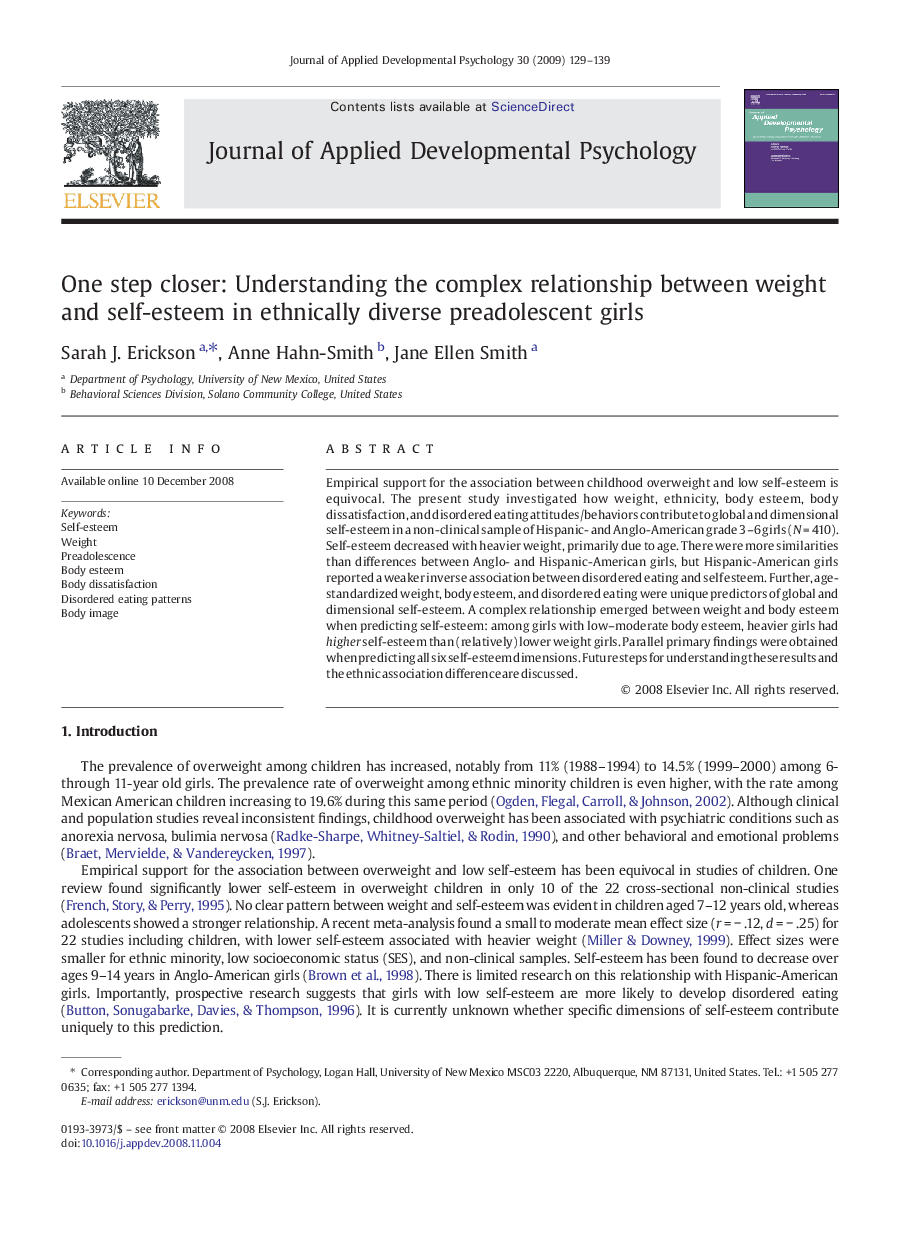| Article ID | Journal | Published Year | Pages | File Type |
|---|---|---|---|---|
| 360072 | Journal of Applied Developmental Psychology | 2009 | 11 Pages |
Empirical support for the association between childhood overweight and low self-esteem is equivocal. The present study investigated how weight, ethnicity, body esteem, body dissatisfaction, and disordered eating attitudes/behaviors contribute to global and dimensional self-esteem in a non-clinical sample of Hispanic- and Anglo-American grade 3–6 girls (N = 410). Self-esteem decreased with heavier weight, primarily due to age. There were more similarities than differences between Anglo- and Hispanic-American girls, but Hispanic-American girls reported a weaker inverse association between disordered eating and self esteem. Further, age-standardized weight, body esteem, and disordered eating were unique predictors of global and dimensional self-esteem. A complex relationship emerged between weight and body esteem when predicting self-esteem: among girls with low–moderate body esteem, heavier girls had higher self-esteem than (relatively) lower weight girls. Parallel primary findings were obtained when predicting all six self-esteem dimensions. Future steps for understanding these results and the ethnic association difference are discussed.
